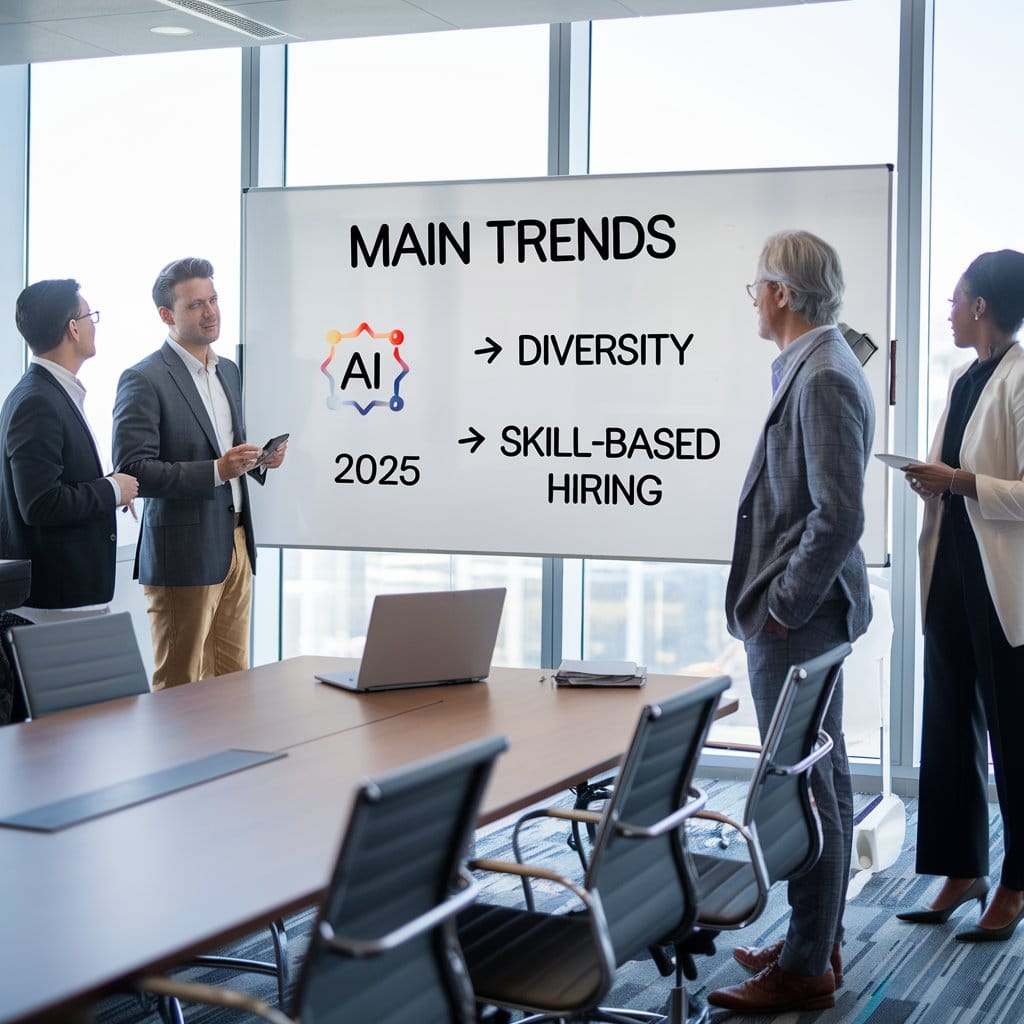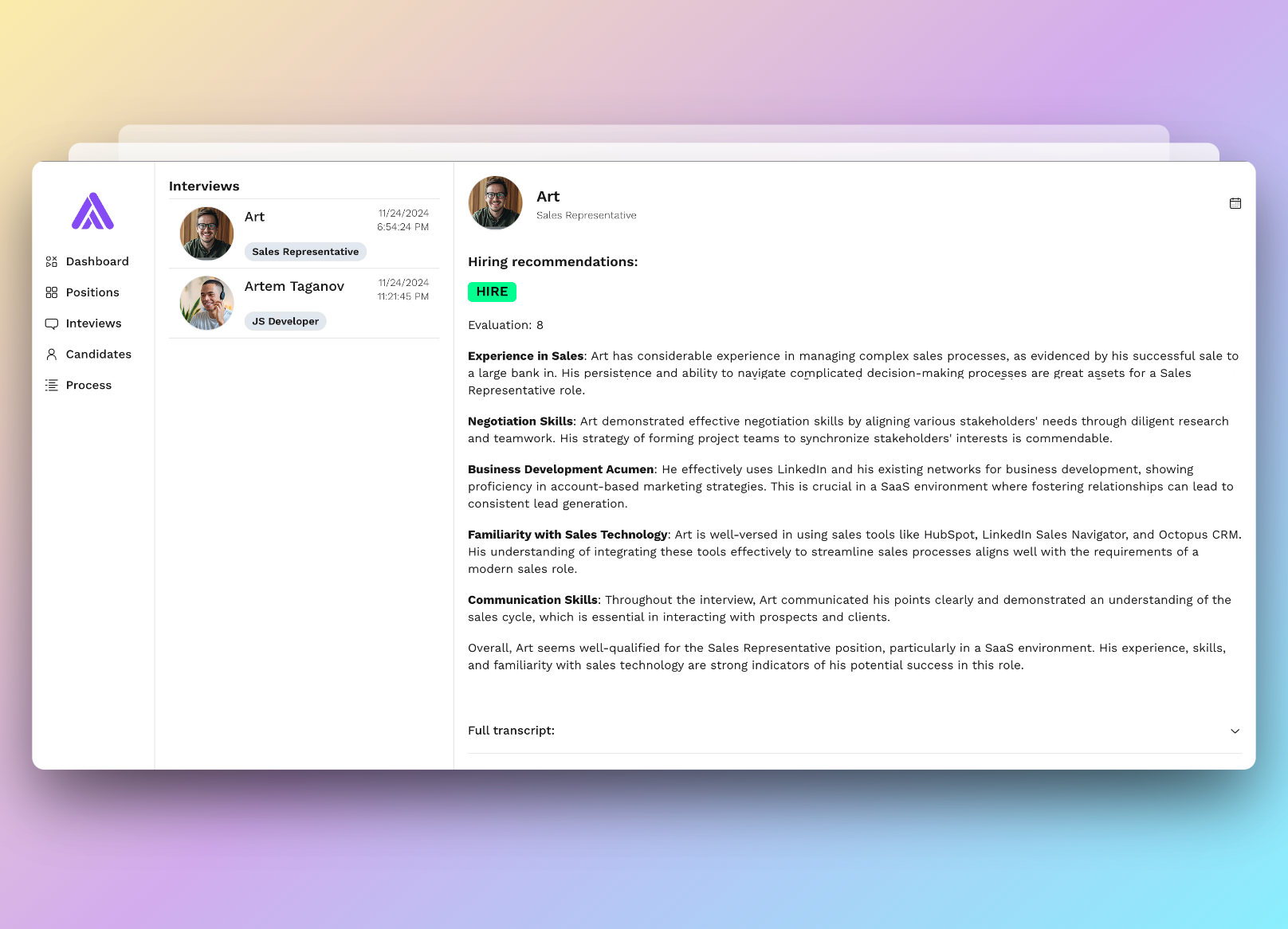The Future of HR Tech: 5 Trends Shaping Talent Management by 2025

As organizations strive to remain competitive in an ever-evolving business landscape, Human Resources is experiencing a technological renaissance. By 2025, the tools and strategies used to attract, manage, and retain talent will look significantly different, reshaping how organizations function globally. Below, I explore five key trends transforming the HR tech space and delve into how businesses can adapt to stay ahead.
AI-Driven Personalization: Redefining Recruitment and Engagement
Artificial intelligence is not just a tool; it’s a game-changer for HR. A report by McKinsey & Company projects that AI tools could save HR professionals up to 40% of their time by automating repetitive and administrative tasks, such as candidate screening, interview scheduling, and employee onboarding processes savings go beyond efficiency. AI enables HR teams to focus on strategic initiatives, such as improving employee engagement and building a more inclusive workplace culture. AI-powered chatbots, for instance, are now handling candidate queries 24/7, providing timely responses and ensuring a smooth recruitment experience.
Additionally, AI can personalize employee experiences by analyzing data to predict career paths, recommend training programs, and offer tailored wellness initiatives. Platforms like aiply.ai are leading the charge, assessing candidates’ skills beyond traditional resumes to uncover untapped potential and eliminate unconscious bias. This not only enhances hiring accuracy but also fosters a more diverse and equitable workplace.
For businesses that have yet to embrace AI in HR, the question is no longer if but when. By integrating AI-driven tools into their processes, organizations can reduce overhead, improve decision-making, and build stronger teams.
Skills-Based Hiring: Beyond the Traditional Resume
The shortcomings of traditional resumes are becoming increasingly evident as employers shift their focus towards skills-based evaluations. A growing number of hiring managers now prioritize practical skills and expertise over formal educational credentials. Reports, including insights from LinkedIn and studies like the Burning Glass Institute’s 2024 findings, reveal that over half of hiring managers emphasize skills during recruitment processes, signaling a lasting trend. This shift reflects a broader effort to address hiring biases and better align candidates with job requirements, fostering a more inclusive and effective approach to talent acquisition.
Skihiring places emphasis on candidates’ abilities, competencies, and real-world performance rather than their educational background or job titles. This approach benefits employers by providing a clearer picture of a candidate's fit for the role, and it benefits candidates by creating more equitable opportunities, especially for those with non-traditional career paths.
Platforms like aiply.ai are revolutionizing this space by offering AI-driven assessments that evaluate technical and soft skills, providing employers with deeper insights into candidates’ capabilities. Companies like Google and Tesla have famously embraced skills-based hiring, proving its effectiveness in building high-performing teams.

Moreover, this shift aligns with the dynamic nature of the modern workplace. As industries evolve, the demand for new skills grows, making continuous assessment and upskilling critical. Organizations that adopt this mindset can future-proof their workforce, ensuring they stay ahead in an increasingly competitive market.
Employee Well-Being: From Perks to Essentials
Employee well-being has become a primary factor in talent retention and performance. A growing body of research, including data from Gallup, shows that a significant portion of the workforce, particularly younger generations, are prioritizing mental health and well-being when selecting a job. In fact, studies indicate that 60% of employees now consider well-being as a crucial factor when deciding where to work. This shift is not just a trend but a reflection of a broader movement towards making employee health a cornerstone of corporate culture. With organizations increasingly recognizing the impact of mental health on productivity, the need to invest in well-being programs has never been more critical.
This growing well-being has led to a surge in workplace wellness tools, such as Calm, Headspace, and Modern Health, which offer resources for stress management, mindfulness, and therapy. Companies are recognizing that happier, healthier employees are more engaged, productive, and loyal.
Wellness programs also provide measurable returns on investment. For example, organizations with robust well-being initiatives report higher employee satisfaction scores and lower turnover rates. Additionally, technology now allows HR teams to track participation and measure the impact of wellness programs, enabling continuous improvement.

By 2025, workplace well-being will shift from being an optional perk to a critical component of any organization’s talent strategy. Companies that fail to prioritize this trend risk losing top talent to competitors who invest in their employees’ holistic health.
Globalization of Talent: Breaking Geographical Barriers
The rise of remote work has reshaped the talent landscape, enabling organizations to hire the best candidates from anywhere in the world. This shift is accompanied by both opportunities and challenges. While companies now have access to a global talent pool, managing cross-border hiring, compliance, and payroll can be complex.
Platforms like Deel and Remote are tackling these challenges head-on. They streamline processes such as contract management, tax compliance, and payroll for distributed teams. These tools also help businesses navigate legal intricacies in different countries, ensuring that hiring practices adhere to local labor laws.
Remote work has also led to the rise of “digital nomads”—employees who work from different locations while staying connected. Managing such a diverse workforce requires advanced collaboration tools like Slack, Zoom, and asynchronous communication platforms. Organizations must also invest in cultural intelligence training to bridge gaps in communication and foster inclusion across time zones.

The globalization of talent also emphasizes the importance of employer branding. Companies need to stand out in a competitive global market by offering flexible work arrangements, robust benefits packages, and opportunities for professional growth. By embracing these changes, organizations can build resilient teams that thrive in a rapidly evolving world.
Sustainability and DEI: Driving Purposeful Workplaces
Recent reports highlight some significant trends and challenges regarding DEI (Diversity, Equity, and Inclusion) in the tech sector for 2024. One key finding from Deloitte is that, while many tech organizations are committed to DEI, there are still notable gaps in how different groups perceive progress. For example, women and non-white workers often feel that their companies' DEI initiatives lack authenticity and that gender parity, particularly in leadership roles, remains elusive. This discrepancy underscores the need for more transparent succession planning that prioritizes DEI at all levels.
Moreover, organizations are increasingly recognizing the strategic importance of DEI, not just in recruitment but also in leadership development and succession planning. Deloitte's analysis suggests that leadership diversity correlates with better financial performance and healthier team dynamics, yet the "leaky pipeline" of diverse talent, especially for women in tech, remains a significant challenge
Furthermore, companies aiming for digital transformation, including adopting generative AI, are also dealing with internal resistance to change. A large part of overcoming this is fostering a culture of inclusivity and ensuring that DEI goals are integrated into broader strategic objectives, which can help overcome misalignments and enhance the overall success of technology initiatives
To address these challenges, businesses need to ensure that their DEI strategies are aligned with operational goals, create leadership programs that support diverse talent, and continue to track progress towards diversity goals—ensuring that these efforts are reflected in tangible, strategic actions.
Technology plays a pivotal role in tracking metrics such as workforce diversity, pay equity, and promotion rates. Platforms designed for DEI analysis provide actionable insights, helping organizations identify gaps and implement meaningful change. For example, AI-powered tools can anonymize resumes to reduce unconscious bias, while employee surveys can measure perceptions of inclusion within teams.
Sustainability is another growing priority for employees and customers alike. Businesses are leveraging technology to track their environmental impact, whether by monitoring carbon emissions or implementing green office initiatives. A sustainable and inclusive workplace is not just a moral obligation; it’s a competitive advantage. Companies that demonstrate commitment to these values are more likely to attract purpose-driven talent and build lasting relationships with stakeholders.
The Road Ahead: Will You Adapt or Fall Behind?
The HR Tech revolution is not on the horizon—it’s already here. AI-driven personalization, skills-based hiring, employee well-being, globalization of talent, and sustainability/DEI initiatives are no longer optional; they are essential for survival in a competitive market.
Organizations that embrace these trends will reap the rewards of higher employee engagement, better talent retention, and a stronger employer brand. On the other hand, those clinging to outdated practices risk falling behind, losing their competitive edge, and struggling to attract top talent.
The question remains: What’s holding you back from transforming your HR processes? Let’s start the conversation. Drop your message to us here: https://aiply.ai/contact-us, and let’s shape the future of HR together.
